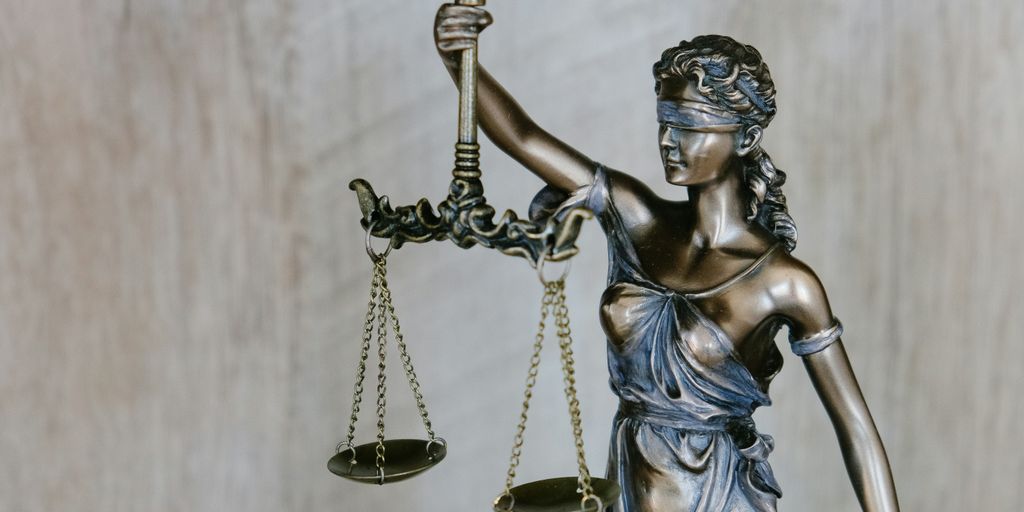Table of Contents
Estate planning is an important process that helps you prepare for the future. It involves making decisions about how your assets will be managed and distributed after you pass away. This guide will cover the essential strategies you need to know to secure your legacy and ensure that your wishes are followed. Understanding the basics of estate planning can help you take control of your future and protect your loved ones.
Key Takeaways
- Estate planning helps you decide what happens to your belongings after you die.
- A will is a crucial part of estate planning; it tells everyone your wishes.
- Trusts can protect your assets and help avoid taxes.
- Planning for incapacity ensures someone can make decisions for you if you can’t.
- Don’t forget about your digital assets; they are important too.
Understanding the Basics of Estate Planning
What is Estate Planning?
Estate planning is the process of deciding what will happen to your assets after you pass away. It involves making plans for your property, money, and even your personal belongings. Having a clear estate plan can help avoid confusion and disputes among family members.
Key Components of an Estate Plan
An effective estate plan usually includes several important parts:
- Wills: Documents that state how you want your assets distributed.
- Trusts: Legal arrangements that hold your assets for the benefit of others.
- Powers of Attorney: Appoint someone to make decisions on your behalf if you can’t.
- Healthcare Directives: Instructions for your medical care if you are unable to communicate.
Common Misconceptions About Estate Planning
Many people think estate planning is only for the wealthy, but that’s not true. Here are some common myths:
- Estate planning is only about money.
- You don’t need a plan if you’re young.
- It’s too complicated and expensive.
Estate planning is essential for everyone, regardless of age or wealth. It ensures your wishes are followed and your loved ones are taken care of.
In summary, understanding the basics of estate planning is crucial for securing your legacy and protecting your loved ones. By addressing these key components and misconceptions, you can start building a solid plan that reflects your wishes and values.
Remember, essential estate planning for families is about protecting your legacy and ensuring your loved ones are cared for after you’re gone.
Creating a Will: Your First Step in Estate Planning

Importance of Having a Will
Having a will is crucial because it ensures that your wishes are followed after you pass away. Without a will, the state decides how your assets are distributed, which may not align with your desires. A will allows you to:
- Specify who gets your belongings.
- Name guardians for your children.
- Choose an executor to manage your estate.
How to Draft a Legally Binding Will
Drafting a will can be straightforward if you follow these steps:
- Decide how to make your will (online, lawyer, or handwritten).
- Select beneficiaries who will inherit your assets.
- Choose an executor who will carry out your wishes.
- Choose a guardian for your children if needed.
- Sign your will in front of witnesses to make it official.
Remember, it’s important to follow your state’s laws to ensure your will is valid.
Updating Your Will: When and Why
You should review and update your will regularly, especially when:
- You experience major life changes (like marriage or divorce).
- You acquire new assets (like a house or business).
- Your beneficiaries’ situations change (like a child reaching adulthood).
Keeping your will up to date is essential for ensuring your legacy is protected.
In summary, creating a will is a vital first step in estate planning. It gives you control over your assets and ensures your loved ones are taken care of according to your wishes. Remember, the process can be simple if you take it step by step, and it’s never too early to start planning for the future!
Trusts: A Powerful Tool in Estate Planning
Different Types of Trusts
Trusts are flexible tools that can help you manage your assets. Here are some common types:
- Revocable Trusts: You can change or cancel these trusts anytime.
- Irrevocable Trusts: Once set up, you cannot change them easily.
- Testamentary Trusts: Created through a will and takes effect after your death.
Benefits of Setting Up a Trust
Setting up a trust can offer several advantages:
- Avoiding Probate: Trusts can help your loved ones avoid the lengthy probate process.
- Privacy: Unlike wills, trusts are not public documents.
- Control: You can specify how and when your assets are distributed.
How to Choose the Right Trust for Your Needs
Choosing the right trust depends on your situation. Consider these factors:
- Your financial goals
- The size of your estate
- The needs of your beneficiaries
Trusts can be a great way to ensure your wishes are followed after you’re gone. They provide a clear plan for your assets, helping to secure your legacy and protect your family’s future.
In estate planning, trusts play a crucial role in organizing your assets and ensuring your loved ones are taken care of. They can help minimize estate taxes and provide peace of mind for you and your family.
Minimizing Estate Taxes: Strategies and Tips
Understanding Estate Taxes
Estate taxes can take a big chunk out of your estate when you pass away. Knowing how to minimize these taxes is crucial for preserving your wealth. Estate taxes are based on the total value of your assets, which can include your home, investments, and other properties.
Tax-Advantaged Estate Planning Strategies
Here are some strategies to help you reduce estate taxes:
- Use the annual gift tax exclusion: You can give away a certain amount each year without it counting against your estate.
- Set up a trust: Trusts can help manage your assets and may reduce the taxable value of your estate.
- Make charitable donations: Giving to charity not only helps others but can also lower your taxable estate.
Gifting as a Tax Reduction Strategy
Gifting is a smart way to lower your estate taxes. By giving away assets while you’re still alive, you can reduce the size of your estate. Here are some key points to consider:
- You can gift up to $17,000 per person each year without any tax implications.
- Gifts to your spouse are usually tax-free.
- Consider gifting appreciated assets to avoid capital gains taxes.
Remember, planning ahead can save your loved ones a lot of money in taxes. Maximize your savings by understanding the options available to you!
Planning for Incapacity: Powers of Attorney and Healthcare Directives

What is a Power of Attorney?
A Power of Attorney (POA) is a legal document that allows someone to make decisions on your behalf if you become unable to do so. This can include financial decisions, legal matters, and more. Choosing the right person for this role is crucial.
Healthcare Directives Explained
Healthcare directives are documents that outline your wishes regarding medical treatment if you cannot communicate them yourself. This can include:
- Preferences for life support
- Decisions about pain management
- Instructions for organ donation
Choosing the Right Person for Your Powers of Attorney
When selecting someone to act as your POA, consider the following:
- Trustworthiness: They should be someone you can rely on.
- Understanding: They need to understand your wishes and values.
- Availability: Ensure they can be there when needed.
Having a clear plan for incapacity can ease the burden on your loved ones during difficult times.
In summary, planning for incapacity is an important part of estate planning. By setting up a Power of Attorney and healthcare directives, you can ensure that your wishes are respected and that your loved ones are not left guessing about your preferences. This is especially important as you think about your overall retirement planning and how to secure your legacy.
Protecting Your Digital Legacy
In today’s world, your digital assets are just as important as your physical belongings. It’s essential to safeguard these assets to ensure your wishes are honored after you’re gone.
Why Digital Assets Matter in Estate Planning
Digital assets can include:
- Social media accounts
- Online banking and investment accounts
- Digital photos and documents
These assets hold value and memories, making it crucial to include them in your estate plan.
How to Include Digital Assets in Your Estate Plan
To effectively manage your digital legacy, start by creating a comprehensive list of your digital assets and access details. This should include usernames, passwords, answers to security questions, and any other relevant information. Here’s a simple way to organize this:
| Asset Type | Details |
|---|---|
| Social Media Account | Username, Password |
| Online Banking Account | Username, Password, Security Q |
| Digital Photos | Location, Access Instructions |
Securing Online Accounts and Passwords
To protect your digital legacy, consider these steps:
- Use a password manager to store your passwords securely.
- Enable two-factor authentication on important accounts.
- Regularly update your passwords to enhance security.
Remember, planning for your digital legacy is just as important as planning for your physical assets. Taking these steps can help ensure your digital footprint is managed according to your wishes.
Working with Estate Planning Professionals
When it comes to estate planning, working with the right professionals can make all the difference. Here are some key points to consider:
Finding the Right Estate Planning Attorney
- Look for someone who specializes in estate planning.
- Check their credentials and experience.
- Ask for recommendations from friends or family.
The Role of Financial Advisors in Estate Planning
- Financial advisors can help you understand your financial situation.
- They can suggest strategies to grow your wealth and minimize taxes.
- They work alongside your attorney to create a comprehensive plan.
Questions to Ask Your Estate Planning Team
- What is your experience with estate planning?
- How do you charge for your services?
- Can you explain the process to me in simple terms?
Having a solid estate plan is crucial for protecting your legacy and ensuring your wishes are honored.
By collaborating with knowledgeable professionals, you can navigate the complexities of estate planning more effectively. Don’t forget to consider your homeownership as part of your overall estate plan!
Wrapping Up Your Estate Planning Journey
In conclusion, planning your estate is a vital step in ensuring your wishes are honored and your loved ones are taken care of after you’re gone. By understanding the basics of wills, trusts, and other important tools, you can create a solid plan that reflects your values and goals. Remember, it’s not just about what you leave behind, but also about how you can make things easier for your family during a tough time. Take the time to talk to a professional, gather your documents, and make your wishes clear. This way, you can secure your legacy and give your family peace of mind.
Frequently Asked Questions
What is estate planning?
Estate planning is the process of deciding what will happen to your money and property after you die. It helps you make sure your wishes are followed and can help reduce taxes and fees.
Why do I need a will?
A will is important because it tells everyone how you want your things divided after you’re gone. Without a will, state laws will decide for you, which may not be what you want.
What is a trust, and why should I consider one?
A trust is a legal arrangement that allows someone to manage your assets for you or for your beneficiaries. Trusts can help avoid probate and may reduce taxes.
How can I reduce estate taxes?
You can reduce estate taxes by giving gifts while you’re alive, setting up trusts, and using other tax-saving strategies. Consulting with a tax expert can help you plan better.
What happens if I become unable to make decisions?
If you can’t make decisions for yourself, a power of attorney can help. This is a legal document that lets someone you trust make decisions on your behalf.
How do I protect my online accounts after I pass away?
To protect your digital assets, keep a list of your online accounts and passwords. You can also include instructions in your estate plan about how to handle these accounts.







